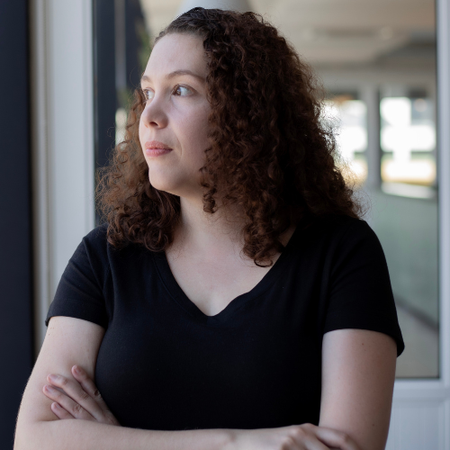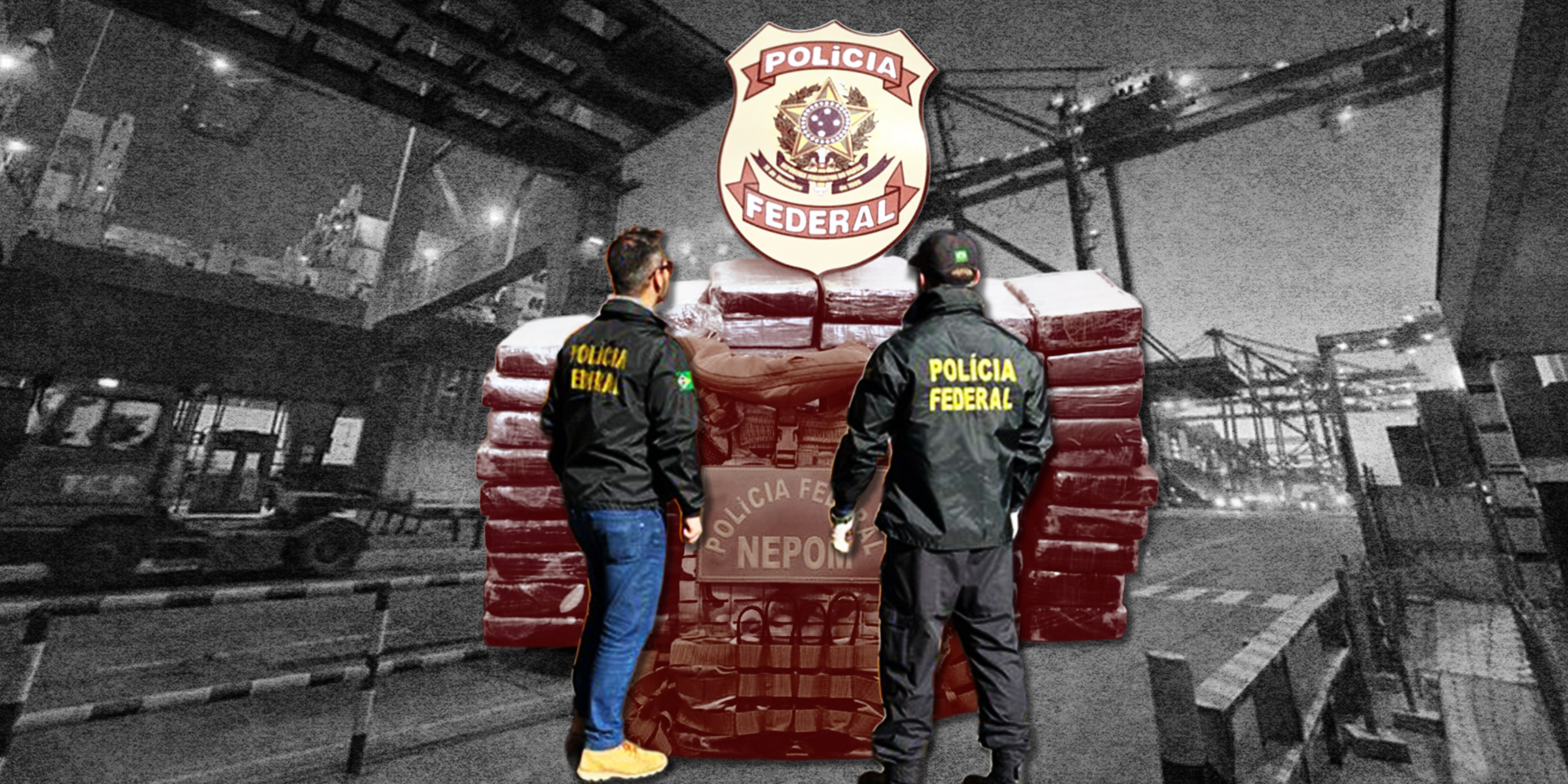A cocaine consignment was seized at a port in Brazil before it could be shipped to Durban – the type of trafficking that a commission of inquiry into a seismic policing scandal in South Africa is set to investigate.
But the commission was postponed before it even started because of poor planning, it emerged last week.
South Africa’s broader policing scandal has been relentlessly developing around this with senior officials taking swipes at each other, and even President Cyril Ramaphosa weighing in with an admonishment.
Crime, meanwhile, continues.
Read more: Cape killings surge as baby and child shot dead amid staggering ‘270 murders’ in July
Rampant violence, including constant shootings, some of which have claimed the lives of innocent children, underscores the local situation.
Lawbreaking linked to this country is also being picked up internationally. On Thursday, 4 September 2025, police in Brazil were called after a patroller found a box abandoned near the cargo area of Sao Paulo’s international airport.
According to a federal police statement, 55 bricks of cocaine were discovered inside it along with a cellphone, a power bank and a label suggesting it was bound “for South Africa”.
/file/dailymaverick/wp-content/uploads/2023/01/Caryn-cocaine-durban-MAIN.jpg)
Destined for Durban
Daily Maverick has also established that a week ago, on Thursday 28 August, a cocaine consignment was intercepted in Brazil at the container terminal of the Port of Paranagua.
According to Brazil’s Federal Revenue Service, the cocaine weighed 49.5kg and was concealed in plant material “destined for export to the port of Durban, South Africa”.
A statement added: “The drug was placed in the container inside the port without the exporter's knowledge, a method known as ‘rip-on/rip-off’.”
No arrest was made so it was not immediately clear who was involved in trying to traffic the cocaine.
Before last week’s Paranagua port interception, Daily Maverick reported that a 13.5kg cocaine consignment was discovered there in June. That consignment was also meant to be shipped to Durban and the “rip on/rip-off” method had also been attempted.
This same method was previously used when cocaine from Brazil, via the Port of Santos, was trafficked to Durban – smuggling that raised suspicions of police involvement.
Read more: Traffickers still eyeing ‘cop cartel’ cocaine conduit between Brazil and South Africa
Daily Maverick has reported extensively on how global traffickers seem to prefer using the Port of Durban when pushing drugs into South Africa via maritime routes.
What this suggests is that traffickers have networks of foot soldiers in Durban, as well as elsewhere in the country, to receive the drug consignments, and transport them around and through South Africa.
Cocaine and the cop crisis
While there is no indication that local police officers were involved in the cocaine destined for Durban and intercepted in Brazil last week, this incident fits into a broader arena that is directly linked to South Africa’s policing scandal.
At the centre of it is a July press conference that KwaZulu-Natal Police Commissioner Lieutenant General Nhlanhla Mkhwanazi held.
During this briefing he made a series of astounding allegations.
These included that a drug cartel headquartered in Gauteng was controlling a high-level criminal syndicate that extended into the state, including into the South African Police Service (SAPS), the police ministry, and the judiciary.
Mkhwanazi’s allegations included that the cartel brought in drugs from South America that often entered the country via the Port of Durban.
The drugs were then allegedly smuggled to Gauteng for processing, as well as local and international distribution.
In the years leading up to Mkhwanazi’s allegations, there were several drug interceptions at the Durban port and some stoked suspicions of police involvement in trafficking.
Collusion suspicions
Two specific incidents stand out.
Daily Maverick has reported on how in July 2021 a R200-million cocaine consignment that arrived in Durban from Brazil was intercepted in Johannesburg.
Four suspects, including two police officers, were arrested and became part of a case that was withdrawn. But investigations around this may not yet have concluded.
Read more: R200m cocaine theft from KZN Hawks office may tie police to global drug traffickers
In the second incident, R200-million cocaine was stolen from the Hawks offices in Port Shepstone in KwaZulu-Natal, the province in which Durban is located.
This incident, widely believed to have been an inside job, happened in November 2021, about four months after the interception in Johannesburg which saw officers arrested.
Back to Mkhwanazi’s still-reverberating 6 July press conference.
/file/dailymaverick/wp-content/uploads/2023/10/caryn-main-2.jpg)
‘Critical urgency’ versus delay
About a week after that press conference, President Ramaphosa ordered a commission of inquiry be created to investigate Mkhwanazi’s allegations.
This is now known as the Madlanga Commission.
A section of its terms of reference said it should look into “whether criminal syndicates, including but not limited to drug cartels, have infiltrated or exert undue influence over” entities including the police service, the State Security Agency and the National Prosecuting Authority.
Raamaphosa, when he announced the commission’s creation, had said that “it is critical that these matters be attended to with the necessary urgency and thoroughness… Interim reports are expected after three and six months, respectively.”
Read more: Minister Kubayi suspends top justice department officials over Madlanga Commission delays
But Ramaphosa’s call for urgency seems to have fallen by the wayside. The Madlanga Commission was meant to have started its public hearings on Monday, 1 September.
But last week it emerged it could not proceed because necessary infrastructure had not been sorted out.
This delay resulted in two Justice Department officials being suspended pending an investigation and disciplinary process.
The Madlanga Commision delay was announced the same week that the cocaine consignment, destined for Durban, was intercepted at the seaport in Brazil – a drug arena that Mkhwanazi flagged and that the commission is meant to look at through a state corruption suspicion lens.
It is not yet clear when the commission will proceed. Its spokesperson Jeremy Michaels told Newzroom Afrika an announcement about this was possibly expected “over a matter of days” or weeks.
Policing skirmishes
It is around all this that divisions among South Africa’s top law enforcers have become even more apparent.
This also loops back to Mkhwanazi’s allegations.
Aside from his assertions about a drug cartel with state links, Mkhwanazi alleged that late last year the police minister at the time, Senzo Mchunu, issued a directive to disband the political killings task team in KwaZulu-Natal.
Read more: ‘Jumping the gun on political murder dockets’ — Ramaphosa, Cachalia rebuke Masemola
Mkhwanazi added that earlier this year deputy national commissioner of crime detection Lieutenant General Shadrack Sibiya ordered that “121 case dockets under investigation” be removed from the team.
According to Mkhwanazi, this was ultimately done to shield politically connected crime suspects.
Mchunu and Sibiya denied any wrongdoing, but both were placed on leave, and Sibiya is challenging this via legal processes.
Last week national Police Commissioner Fannie Masemola answered journalists’ questions about the 121 KwaZulu-Natal political killings task team dockets at the centre of this.
Read more: ‘You do your job, I’ll do mine’ — Cachalia, Masemola make amends over political murder dockets
He said these dockets were found at the police headquarters and would be sent back to KwaZulu-Natal for further investigation.
But this resulted in Firoz Cachalia, who is now acting Police Minister following Mchunu’s placement on leave, as well as Ramaphosa, rebuking Masemola. They believed Masemola was acting prematurely on issues on which the Madlanga Commission is meant to focus.
‘Rapidly evolving global crime’
This saga has since been ironed out - the 121 dockets are back in KwaZulu-Natal, and copies of them have been made in case the Madlanga Commission needs these.
The prior tensions involving Ramaphosa, Cachalia and Masemola surfaced days after the Madlanga Commission postponement was announced - towards the end of last week.
This was when the international police organisation Interpol was holding its 27th African Regional Conference in Cape Town.
That’s a wrap 🇿🇦
After three days of discussions on strengthening international police cooperation across Africa and beyond, INTERPOL’s 27th African Regional Conference has come to an end.
Watch the highlights ⬇️https://t.co/41kXo3mSmx@SAPoliceService pic.twitter.com/da2ERTEGsK
— INTERPOL (@INTERPOL_HQ) August 29, 2025
Masemola addressed the conference on its first day, and spoke about how “transnational organised crime is evolving with alarming speed”, adding that this meant slick and collaborative policing is needed to address it.
But when looking at what has been happening within South Africa’s policing arena, it is clear that fractures that can affect crime-fighting are cutting through it.
It is also clear that criminals are very active locally – and like the recent cocaine interceptions in Brazil show, those in other countries continue operating with South Africa in sight. DM





 Illustrative Image: Cocaine was discovered hidden in a container of chicken at Brazil’s Paranaguar port on 17 June 2025. Authorities there say it was destined for Durban. (Photos: Brazil Federal Revenue Service)
Illustrative Image: Cocaine was discovered hidden in a container of chicken at Brazil’s Paranaguar port on 17 June 2025. Authorities there say it was destined for Durban. (Photos: Brazil Federal Revenue Service)